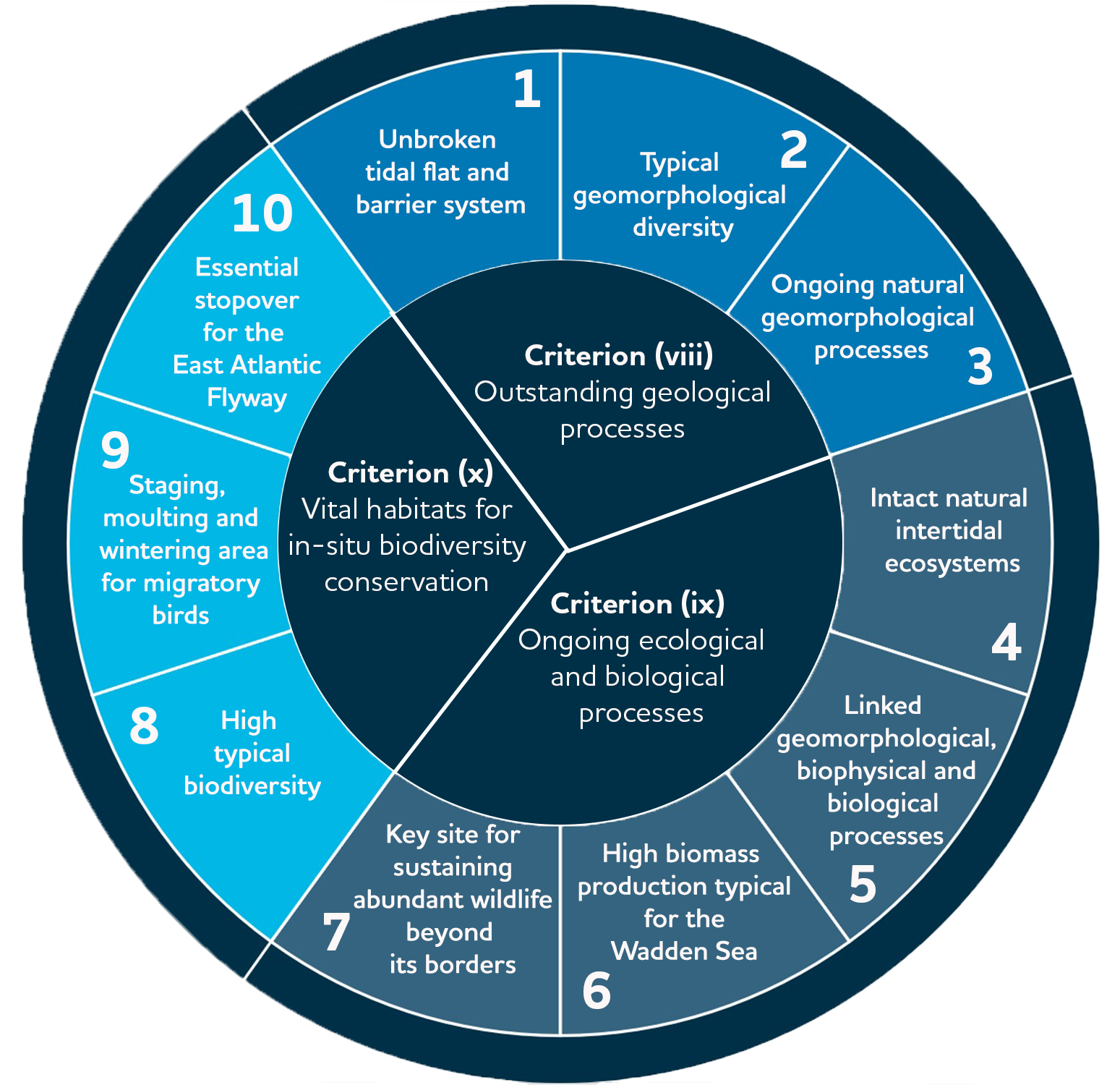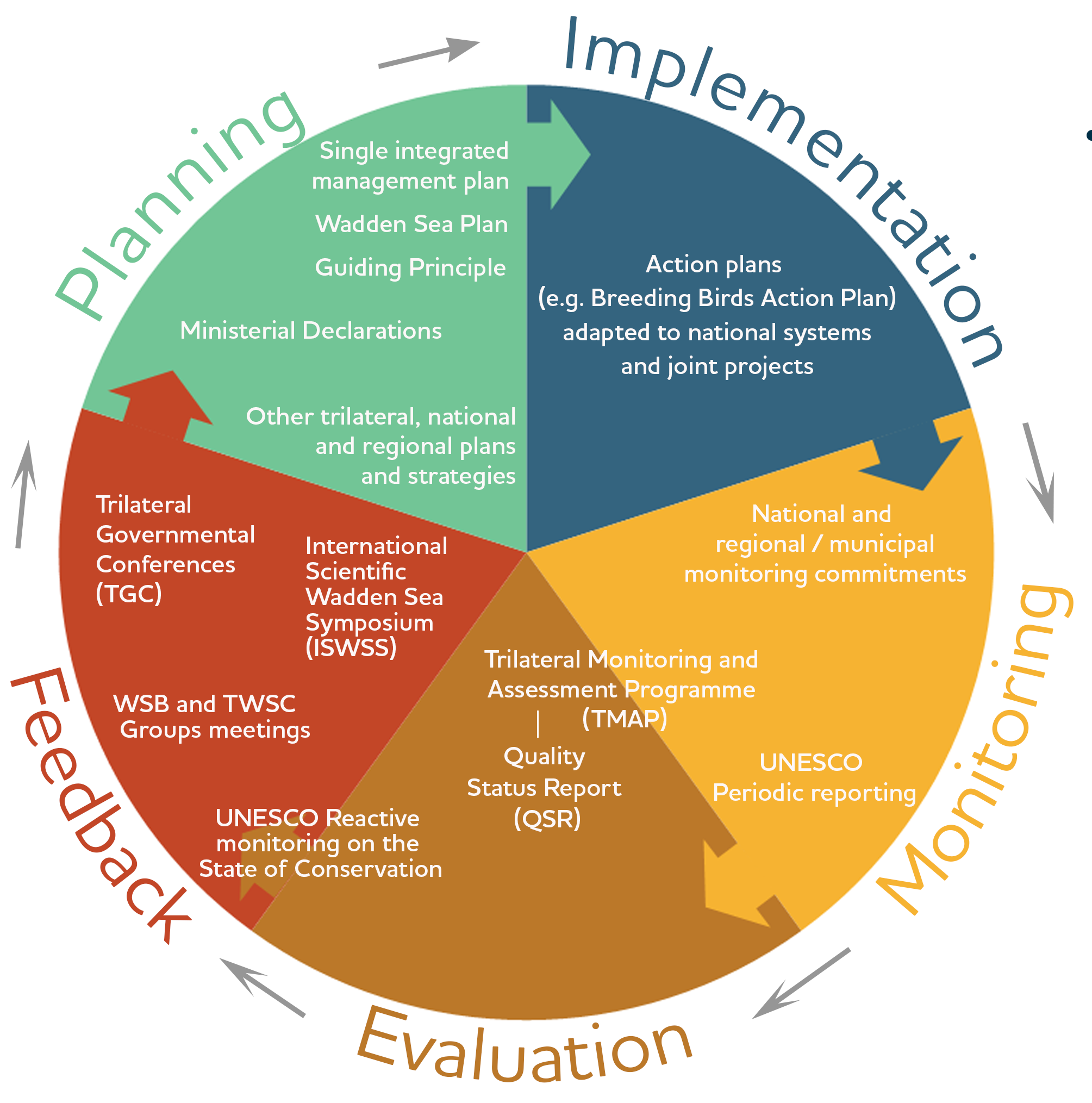


El propósito es añadir criterios y valores específicos del Patrimonio Mundial para complementar la gestión de conservación de la naturaleza existente, subrayando así que la designación de Patrimonio Mundial es el máximo reconocimiento internacional para un área natural.
Las Directrices prácticas para la aplicación de la Convención del Patrimonio Mundial (§ 111) establecen que un ciclo de gestión adaptable de planificación, aplicación, seguimiento, evaluación y retroalimentación es uno de los elementos de una gestión eficaz. En el proceso de elaboración del SIMP, los instrumentos de gestión del TWSC existentes (actividades, políticas, planes y estrategias) se organizan y visualizan en las fases correspondientes del ciclo de gestión adaptativa (véase el gráfico).
Para evaluar los efectos positivos y negativos existentes y potenciales sobre el Valor Universal Excepcional (VUE) del Patrimonio Mundial del Mar de Wadden, se identificaron diez valores clave a partir de los tres criterios que cumple el Mar de Wadden (método utilizado en el Índice de Vulnerabilidad Climática). Una rápida evaluación por expertos de los efectos positivos y negativos de los temas clave del SIMP en cada uno de los diez valores clave del VUE sirvió de apoyo a los debates sobre las posibles actividades de gestión (véase el gráfico).
En 2021 se realizó una evaluación rápida de la vulnerabilidad al cambio climático basada en índices (Índice de Vulnerabilidad Climática - IVC) utilizando los valores clave del VUE.
La Convención del Patrimonio Mundial establece los deberes de los Estados Partes, sus funciones en la protección y conservación de los sitios, y proporciona orientación operativa sobre la aplicación de la Convención.
El TWSC se creó en 1978 como herramienta de cooperación y coordinación de la conservación de la naturaleza. Dinamarca, Alemania y los Países Bajos han creado de forma independiente y conjunta un sistema de gestión integral que aborda aspectos clave.
- Aunque ya se ha conseguido mucho y se está trabajando para alcanzar hitos importantes, aún quedan retos que afrontar.
- Por un lado, los resultados de las evaluaciones rápidas de expertos sobre los efectos positivos y negativos de los temas clave del SIMP en los valores clave del Valor Universal Excepcional (VUE) coinciden, en general, con los resultados de los debates y las opiniones de los responsables políticos y de los sitios. Por otro lado, si se dispone de recursos y tiempo, es preferible realizar estudios en profundidad que puedan revisarse y actualizarse periódicamente. Para solucionarlo, la Cooperación Trilateral del Mar de Wadden (TWSC) optó por integrar estas evaluaciones en los Informes sobre el Estado de la Calidad actualizados periódicamente por expertos.